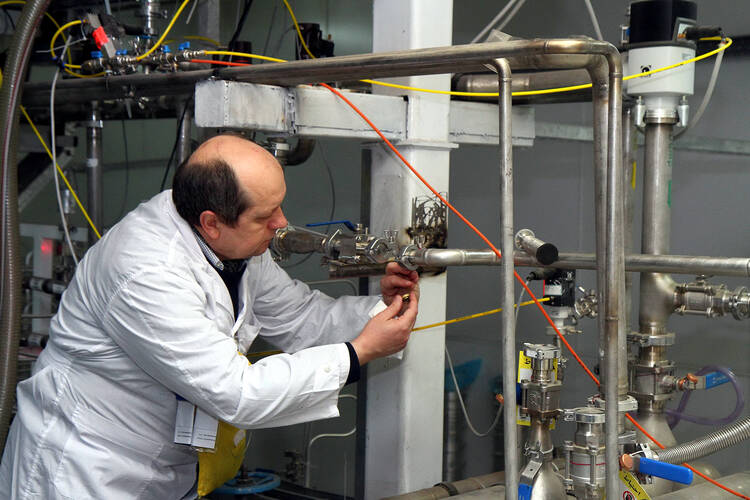As congressional opponents of the “Lausanne framework” agreement with Iran prepped for Senate Foreign Relations Committee hearings tomorrow, proponents of the deal, meant to hamstring Iran’s purported nuclear weapons development, got some help today from the U.S. bishops.
Las Cruces, New Mexico’s Bishop Oscar Cantú, Chair of the Committee on International Justice and Peace for the United States Conference of Catholic Bishops, urged Congress to give the framework and peace in the region a chance. “We welcome the most recent step the United States and its international partners have taken with Iran and encourage our nation to continue down this path,” he wrote in a letter to Congress. “Now is the time for dialogue and building bridges which foster peace and greater understanding. We urge Congress to support these efforts.”
Bishop Cantú added: “It is vital to continue to foster an environment in which all parties can build mutual confidence and trust in order to work towards a final accord that enhances peace. For this reason, our Committee continues to oppose Congressional efforts that seek to undermine the negotiation process or make a responsible multi-party agreement more difficult to achieve and implement.”
He said, “The alternative to an agreement leads toward armed conflict, an outcome of profound concern to the Church.”
Secretary of State John Kerry couldn’t agree more. The AP reports that on Face the Nation yesterday he urged congressional opponents of the deal to "hold their fire" until they see the text of a final agreement, due June 30. "We've earned the right to be able to try and complete this without interference and certainly without partisan politics," Kerry said. Months of complex negotiations included representatives from Iran, the United States, the United Kingdom, the Russian Federation, China, Germany and France. Reaching their framework of understanding was called “no small achievement” by Bishop Cantú.
Kerry and the Obama administration hope to beat back an effort in Congress to seek greater oversight over the Obama administration initiative with Iran. A bill proposed by Republican Sen. Bob Corker of Tennessee, chairman of the Senate Foreign Relations Committee, and embattled Democratic Sen. Bob Menendez of New Jersey, would give Congress a say on any agreement that would mean lifting sanctions on Iran in exchange for surrendering nuclear material and supervision by the International Atomic Energy Agency.
The Holy See has long supported dialogue aimed at reducing tensions with Iran and resolving concerns over its nuclear development program. On Easter Sunday, Pope Francis offered his prayers for a successful conclusion to those negotiations: “In hope we entrust to the merciful Lord the framework recently agreed to in Lausanne, that it may be a definitive step toward a more secure and fraternal world.”
“This is a big issue for the Vatican, for the Holy Father,” said Rose E Gottemoeller, U.S. undersecretary of state for arms control and international security, who was “very glad” to hear the pope’s remarks on the framework. Gottemoeller is in Rome this week for meetings with Vatican officials in preparation for the Nuclear Non-proliferation Treaty Review Conference, scheduled for April 27-May 22, at the United Nations.




